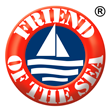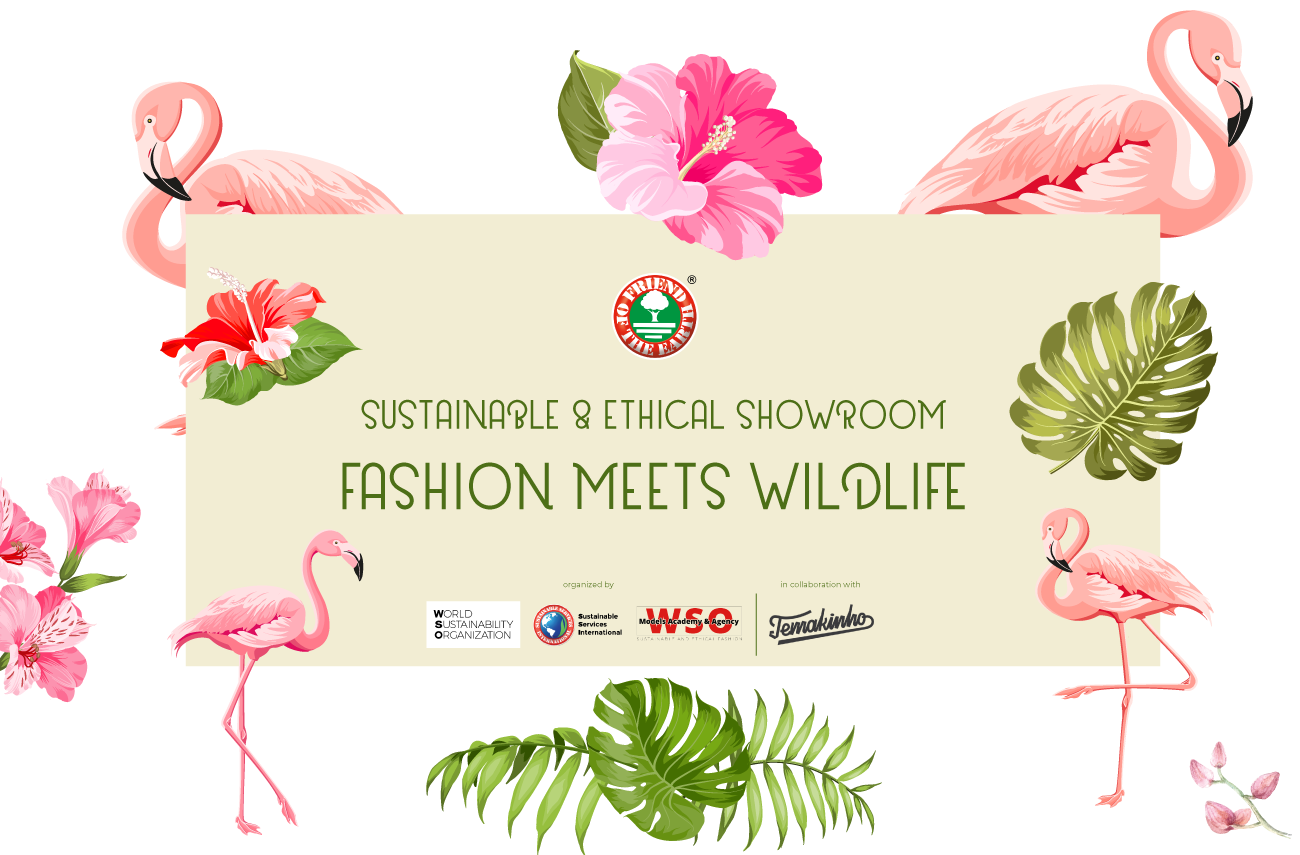The first showroom entirely dedicated to garments made following the principles of ethics and sustainability is preparing to open its doors for its second edition, in Milan, Sept. 20-26, on the same days of the Fashion Week.
Its first edition, last February, was a huge success. Now the Ethical and Sustainable Showroom, a project of the World Sustainability Organization (WSO) and part of the Sustainable Fashion program, is ready to make its comeback in Milan, in a new location, with more brands coming from around the world and a special event.
“Fashion Meets Wildlife” is the theme of this new edition. Wild and unspoiled nature represents the common thread of the designers’ creations, which match the sophisticated and original atmosphere of Temakinho Milano, a Japanese-Brazilian sushi restaurant. The Art Nouveau building at 4, Via Boccaccio in Milan, will host the WSO Showroom, Sept. 20-26, and surprise you with colors and sounds from Brazil.
Temakinho has been the first restaurant chain to join the WSO Sustainable Restaurants program, over five years ago, and receive Friend of the Sea® golden level certification for its engagement to promote seafood from sustainable fisheries and aquaculture.
NINE BRANDS FROM FIVE COUNTRIES AND THREE CONTINENTS
Last February’s event attracted the attention of journalists, influencers, buyers as well as students from all over the world.
The garments and accessories on display on this edition of the Showroom are produced by designers from India, Brazil, Italy, Switzerland and Colombia. All areverified as being produced following sustainable practices..
Among the Italian brands on display:
– young designer Camilla Vaccari, with her Camilla Viola Vaccari collection, highlighted also by Vogue Italia;
– The Barn, a project that stems from the desire, which has now become a necessity, “to change the philosophy with which we wish to dress ourselves.”
From Brazil:
– Natural Cotton Color‘s signature creations and designer Raquel Grassi‘s special collection for the brand.
– garments with natural colors from Atelier Carolina Bortolini
From Switzerland:
– Chiquet Corporate, from Switzerland, propose sustainable fashion for companies’ uniforms.
– Zoë Klose proposes sustainable activewear
– Kazo, a major retail brand from India will also showcase; the company is engaged in a continuos process to greatly reduce its environmental impact. .
– Paola Perdomo, from Colombia, is the designer of the Paola Perdomo Coture and Juana’s Princesses lines. The former designed, in the words of the creator herself, “for conscious and extroverted women,” the latter, a line for little girls “with a princely style, giving the dresses of dreams.”
Throughout the week, it will be possible to appreciate some of the garments worn by models from the WSO Models Academy & Agency (WSO MAA), while, the big news this year, on Saturday 24 at 5 p.m. it will be possible to participate in a special event, a fashion show. Each brand will select some of its proposals for the models of WSO MAA, and other associated ethical agencies.
The mission of the WSO Models Academy & Agency is to provide a platform where models can be treated fairly and their rights respected . The Agency also provides free, anonymous, and strictly confidential preliminary support for models who need legal advice and nutritional tips.
Simply write your message to help@wsomodels.org
AN INDUSTRY RESPONSIBLE FOR 8% OF EMISSIONS
The fashion industry has been operating for years with a high impact on the environment and little social responsibility. In addition, many modeling agencies do not adhere to the minimum principles of ethical and humane treatment of workers. WSO’s Ethical and Sustainable Showroom aims to address these issues and provide buyers with a reliable reference for sustainably sourced, verified garments worn by models whose rights are respected, supported, and protected in their work. In addition, the proceeds from the Showroom’s operations will largely go to WSO’s conservation projects and campaigns.
United Nations Environment Program (UNEP) estimates that the global Fashion industry, worth nearly $3 trillion, is responsible for about 8 percent of the world’s greenhouse gas emissions. Textiles consume about 215 trillion liters of water annually, with chemicals released during both production and consumption.
Clothing accounts for one-fifth of the 300 million tons of plastic produced globally each year. Polyester, a form of plastic derived from petroleum, has overtaken cotton as the mainstay of textile production. As a result, garments made from polyester and other synthetic fibers are a primary source of microplastic pollution, which is particularly harmful to marine life.




